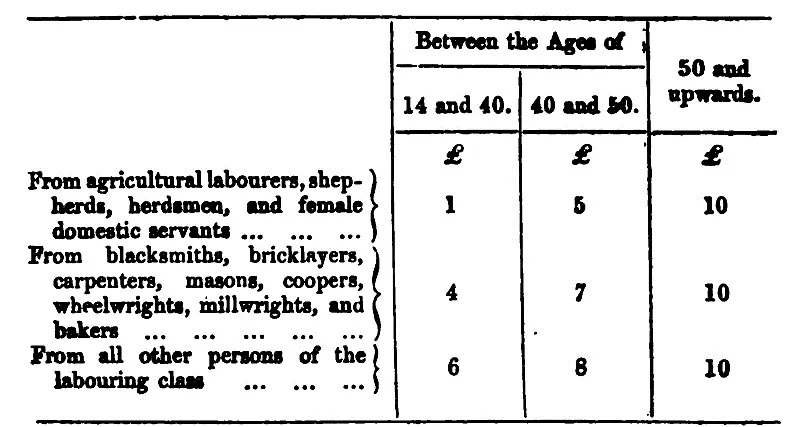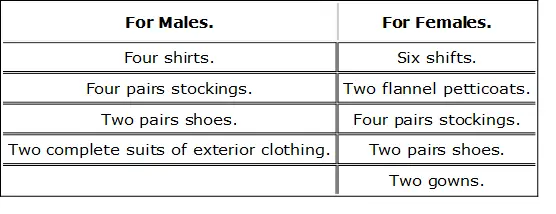Ward - The Cape and the Kaffirs - A Diary of Five Years' Residence in Kaffirland
Здесь есть возможность читать онлайн «Ward - The Cape and the Kaffirs - A Diary of Five Years' Residence in Kaffirland» — ознакомительный отрывок электронной книги совершенно бесплатно, а после прочтения отрывка купить полную версию. В некоторых случаях можно слушать аудио, скачать через торрент в формате fb2 и присутствует краткое содержание. Издательство: Иностранный паблик, Жанр: foreign_prose, История, foreign_edu, foreign_antique, на английском языке. Описание произведения, (предисловие) а так же отзывы посетителей доступны на портале библиотеки ЛибКат.
- Название:The Cape and the Kaffirs: A Diary of Five Years' Residence in Kaffirland
- Автор:
- Издательство:Иностранный паблик
- Жанр:
- Год:неизвестен
- ISBN:нет данных
- Рейтинг книги:4 / 5. Голосов: 1
-
Избранное:Добавить в избранное
- Отзывы:
-
Ваша оценка:
- 80
- 1
- 2
- 3
- 4
- 5
The Cape and the Kaffirs: A Diary of Five Years' Residence in Kaffirland: краткое содержание, описание и аннотация
Предлагаем к чтению аннотацию, описание, краткое содержание или предисловие (зависит от того, что написал сам автор книги «The Cape and the Kaffirs: A Diary of Five Years' Residence in Kaffirland»). Если вы не нашли необходимую информацию о книге — напишите в комментариях, мы постараемся отыскать её.
The Cape and the Kaffirs: A Diary of Five Years' Residence in Kaffirland — читать онлайн ознакомительный отрывок
Ниже представлен текст книги, разбитый по страницам. Система сохранения места последней прочитанной страницы, позволяет с удобством читать онлайн бесплатно книгу «The Cape and the Kaffirs: A Diary of Five Years' Residence in Kaffirland», без необходимости каждый раз заново искать на чём Вы остановились. Поставьте закладку, и сможете в любой момент перейти на страницу, на которой закончили чтение.
Интервал:
Закладка:

“All children under fourteen will pay 10 shillings each; and if any family contains, at the time of embarkation, more than two children under fourteen years of age, for each such child 5 shillings additional must be paid.
“Wives to pay the same sums as their husbands, in the several classes.
“Out of the above payments, bedding and mess utensils for the use of the emigrants during the voyage, will be provided by the Commissioners.
“The mode of making these payments to the Commissioners will be pointed out in the deposit circular. The Commissioners’ selecting agents are not employed by the Commissioners to receive money.”
Any attempted fraud with regard to the signatures of the requisite certificates, or misrepresentation as to trade, number in family, will be held to disqualify the party for a passage. The emigrants must repair to the appointed port at their own expense, and if they fail to do so at the proper time, they will lose their passage and be liable to a forfeiture of 2 pounds for each adult, and 1 pound for each child, unless they give to the Commissioners timely notice, and a satisfactory explanation of their inability to proceed.
“Clothing.—The lowest quantity that can be admitted for emigrants to the Cape is as follows:—”

“For use on the voyage, shoes or slippers are much more convenient than boots. The following is a cheap and excellent composition for preserving leather from the bad effects of sea-water; linseed oil, one gill; spirit of turpentine, one ounce; bees’-wax, one ounce; Burgundy pitch, half ounce; to be well melted together, and kept covered in a gallipot; lay it on boots or or shoes, rubbing it in well, and set them in a hot sun, or before the fire.
“The usual length of the voyage to the Cape of Good Hope is about seventy days.
“The whole quantity of baggage for each adult emigrant must not measure more than twenty cubic or solid feet, nor exceed half a ton in weight. It must be divided into two or three boxes, the contents of which must be closely packed, so as to save space in the ship. Large packages and extra baggage will not be taken unless paid for, and then only in case there be room in the ship.
“Each family will be allowed to take only its own luggage. Any violation of this rule will subject the party to a forfeiture of his passage.
“On arrival in the colony the emigrants will be at perfect liberty to engage themselves to any one willing to employ them, and to make their own bargain for wages. No repayment or service is required from them for the passage out. The only return expected is, a strict observance on board of the regulations framed with a view to their health and comfort during the voyage, and general good conduct and industrious habits in the colony.
“Letters, etc, should be addressed, post paid, to Stephen Walcott, Esq, Secretary to the Board of Emigration, Number 9, Park Street, Westminster.”
By a recent Act of Parliament known as the “Passenger Act,” some most valuable provisions are made for the protection of emigrants on their voyage. The Act applies to foreign as well as British ships, and it provides for the inspection of the ships by competent surveyors; for carrying a certain number of boats; for a proper supply of medicine; and for preventing drunkenness. It further directs that “in addition to any provisions which the passengers may themselves bring, the following quantities at least of pure water and wholesome provisions must be supplied to each passenger by the master during the voyage, including the time of detention at any place:—”
3 quarts of water daily.
And per week. To be issued in advance, and not less often than twice a week:
2.5 lbs. of bread or biscuit (not inferior to navy biscuit)
1 lb. wheaten flour
5 lbs. oatmeal
2 lbs. rice
2 oz. tea
1 lb. sugar
1 lb. molasses.
“Five pounds of good potatoes may at the option of the master be substituted for one pound of oatmeal or rice, and in ships sailing from Liverpool, or from Irish or Scotch ports, oatmeal may be substituted in equal quantities for the whole or any part of the issues of rice. The Emigration Commissioners, with the authority of the Secretary of State, may substitute other articles of food.—Sec. 24 and 25.
“Vessels carrying as many as 100 passengers must be provided with a seafaring person to act as passengers’ cook, and also with a proper cooking apparatus. A convenient place must be set apart on deck for cooking, and a proper supply of food shipped for the voyage. The whole to be subject to the approval of the Emigration Officer.—Sec. 26.
“If the ship does not sail on the appointed day, and the passengers are ready to embark, they are entitled to recover from the owner, charterer, or master of the ship, subsistence-money after the rate of 1 shilling per day for each passenger. But if the ship be unavoidably detained by wind or weather, and the passengers be maintained on board in the same manner as if the voyage had commenced, no subsistence-money is payable.—Sec. 33.
“Passengers are not to be landed against their consent at any place other than the one contracted for, and they are entitled to sleep and to be maintained on board for forty-eight hours after arrival, unless the ship in the prosecution of her voyage quits the port sooner.—Sec. 35 and 36.
“Ships detained in port after clearance more than seven days, or putting into any port in the United Kingdom, must under a penalty not exceeding 100 pounds, replenish their provisions, water, and medical stores before they can be allowed to proceed on their voyage. Masters of passenger ships putting back must, under a penalty not exceeding 10 pounds, within twenty-four hours report their arrival, and the cause of putting back, and the condition of the ship’s stores to the Emigration Officer, and produce the official list of passengers.—Sec. 38.
“Such regulations as may be prescribed by order of the Queen in Council are to be enforced by the surgeon, aided and assisted by the master, or in the absence of a surgeon, by the master. Any person neglecting or refusing to obey them will be liable to a penalty of 2 pounds; and any person obstructing the master or surgeon in the execution of any duty imposed on him by the Order in Council, will be liable to the same penalty, and moreover to one month’s imprisonment at the end of the voyage.—Sec. 39 and 40.
“Two copies of the Act, with such abstracts of it, and of any Order in Council relating thereto, as the Colonial Land and Emigration Commissioners may prepare, are to be delivered to the master, who is bound, under a penalty not exceeding 40 shillings per diem, to post up previous to the embarkation of the passengers, and to keep posted up in at least two conspicuous places between the decks, such copies of such abstracts so long as any passengers are entitled to remain on board. Any person displacing or defacing this abstract is liable to a penalty not exceeding 40 shillings.—Sec. 41.
“The requirements of the Act are enforced by penalties on the master not exceeding 50 pounds except in cases where other penalties are specifically imposed. All penalties are to be sued for before two or more justices of the peace, to the use of Her Majesty. They can only be recovered in the United Kingdom by the Emigration Officers, or by the officers of Her Majesty’s Customs; and in the British possessions abroad, by those officers, or by any other person duly authorised for the purpose by the Governor of the colony. Sec. 50 and 52.
Читать дальшеИнтервал:
Закладка:
Похожие книги на «The Cape and the Kaffirs: A Diary of Five Years' Residence in Kaffirland»
Представляем Вашему вниманию похожие книги на «The Cape and the Kaffirs: A Diary of Five Years' Residence in Kaffirland» списком для выбора. Мы отобрали схожую по названию и смыслу литературу в надежде предоставить читателям больше вариантов отыскать новые, интересные, ещё непрочитанные произведения.
Обсуждение, отзывы о книге «The Cape and the Kaffirs: A Diary of Five Years' Residence in Kaffirland» и просто собственные мнения читателей. Оставьте ваши комментарии, напишите, что Вы думаете о произведении, его смысле или главных героях. Укажите что конкретно понравилось, а что нет, и почему Вы так считаете.












